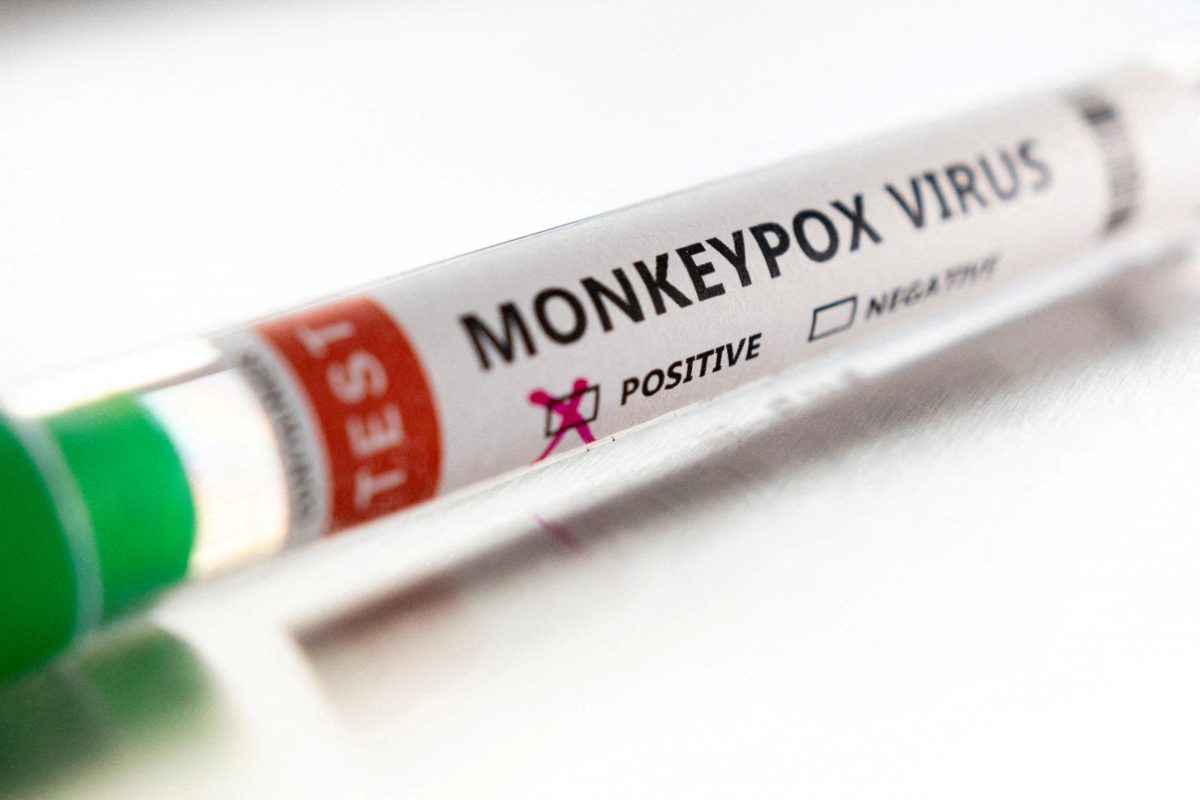Health Minister Dr Frank Anthony on Monday confirmed that Guyana has recorded a case of monkeypox while urging the citizenry not to panic because it is not “readily transmissible.”
In a recorded interview with the Department of Public Information, Anthony said the patient had all the signs and symptoms of monkeypox and PCR testing was used to confirm the diagnosis.
He explained that the patient, a male Region Four resident in his 50s, has since been isolated at the Ocean View Infectious Disease Hospital, where he is stable and doing very well.
“The persons who the patient would have in been contact with over this period, we have also spoken with them and they are right now in quarantine,” he added.
Monkeypox, which causes pus-filled blisters that crust over and fall off, is spread by coming into contact with a person or an animal infected with the virus.
Last month, the World Health Organization (WHO) declared the growing monkeypox outbreak a global health emergency, its highest level of alert. With the announcement, the ministry had noted that the current world outbreak is caused by the less severe West African clade.
According to Anthony, the ministry has been preparing and taking precautions to ensure detection, including laboratory diagnosis.
“I want the public to know that we have diagnostic capabilities. We have our labs that are prepared, we have a lot of people who have been trained. Over the last couple of months, we have trained a number of physicians, we have trained a number of laboratory staff, [so] just in case if we have cases, [we know] what to do,” he said.
At the same time, Anthony urged the citizens against panicking, while pointing out that monkeypox is not readily transmissible as it would require “very, very close contact” with an infected person and lesions on their skin for an infection to occur.
Anthony highlighted the success in the region thus far with managing cases in order to reassure the public of the unlikelihood of wide transmission. He pointed to cases in Cuba, Barbados, Jamaica and the Bahamas. “So once you manage it properly, you are not going to see a lot of people getting sick,” he said.
He admitted that Brazil had more than 3,000 cases but pointed out that it is a large country with a big population.
Anthony also said border and airport personnel have also been trained to detect the disease, and will report any suspected cases to health authorities. Healthcare workers in the public and private sector have also been advised to report any suspected cases of monkeypox – which will see a rapid response team dispatched to evaluate and test the patient.
Several samples will be taken from the person suspected to be infected with the disease to confirm an infection, said Anthony.
While the Ministry has test kits for monkeypox, according to Anthony, the government will have to buy more to ensure there is adequate stock.
The Ministry is also working with the Pan-American Health Organisation (PAHO) to purchase vaccines. Presently, Anthony said, the vaccine for monkeypox is being manufactured by one company and while they have a lot of orders, the government has been able to place an order for a shipment of vaccines.
“Maybe in another month we should get our first shipment of vaccines for monkeypox,” he noted.
Chief Medical Officer Narine Singh, who was present with Anthony during the interview, advised that the best prevention method is to avoid close contact with persons displaying symptoms of the disease and advised persons who may have lesions on their skin to seek health care.
Writing for the ministry last month, Dr Tariq Jagnarine explained that after exposure, it may be several days to a few weeks before an infected person develops symptoms. Early signs of monkeypox include flu-like symptoms like:
• Fever
• Chills
• Headache
• Muscle aches
• Fatigue
• Swollen lymph nodes
After a few days, a rash often develops, he explained, while noting that the rash starts as flat, red bumps, which can be painful. “Those bumps turn into blisters, which fill with pus. Eventually, the blisters crust over and fall off — the whole process can last two to four weeks. Persons can also get sores in their mouth, vagina, or anus.”
Jagnarine added that not everyone with monkeypox develops all of the symptoms. “In fact, in the current (2022) outbreak, many cases aren’t following the usual pattern of symptoms. This atypical presentation includes only a few lesions, no swollen lymph nodes, less fever, and other signs of illness. Persons can have it and not know it. But even if they don’t show any signs of infection, it can spread still spread to others through prolonged close contact.”
Addressing the transmission of the virus, Jagnarine noted that it can spread from person to person, but pointed out that it was less common. “Person-to-person spread (transmission) occurs when persons come in contact with the sores, scabs, respiratory droplets or oral fluids of an infected person usually through close, intimate situations like cuddling, kissing, or sex. Researchers aren’t sure if the virus is transmitted through semen or vaginal fluids,” he explained.
He said it can also be spread by coming into contact with recently contaminated materials like clothing, bedding, and other linens used by an infected person or animal.
Monkeypox is usually a self-limited disease with symptoms lasting from two to four weeks. Most people with monkeypox get better on their own without treatment.
Anthony noted that there are a small group of patients who may develop complications if infected. “Like with any disease, you do have a subset of people that can have complications,” he said, while reiterating that the best prevention is early detection. “I don’t want people to panic…,” he said before adding, “We are prepared for it.”
